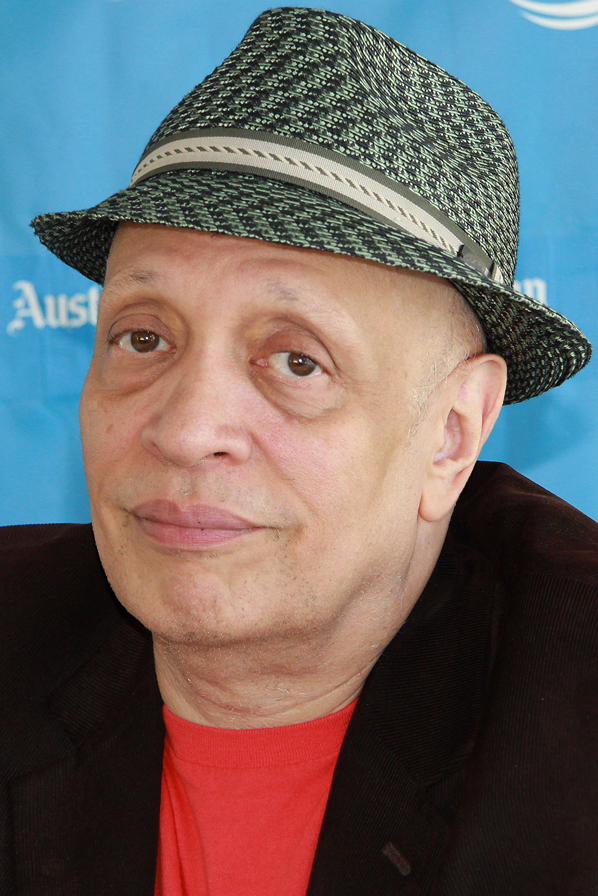Walter Mosley's Down the River Unto the Sea
 |
| Source: Wikipedia |
When I say my To-Be-Read (TBR) Pile is less of a pile and more of a mound, I'm not exaggerating. It's not just "real" (hardback and paperback) books; my TBR pile includes eBooks, audiobooks, and just the names of authors, whose work I eventually intend to dive into.
One such author in that final category, for a number of years, has been the author Walter Mosley.
I call him an author because the number of genres he writes in, as well as the length of his bibliography, is considerable: nonfiction, science fiction, young adult fiction, literary and realistic fiction, plays, erotica (believe it or not), and crime and mysteries. His output in that last genre is probably that for which he's best known. In that genre alone, he's created four of the best known characters in contemporary crime fiction: Socrates Fortlow, Fearless Jones, Leonid McGill, and, most prominently, Easy Rawlins.
Like other authors I've talked about, Mosley's bibliography can be daunting when you take a cold look at it. One of the easiest ways to approach it, as some have said, is to pick one of his best-known characters and just make your way through it. However, I decided to take a different approach. Rather than beginning with Easy or Leonid, I opted to read one of Walter Mosely's stand alone works, just to see if I liked his style. I also wanted to get a taste for the kind of work for which he's best known (i.e. mystery fiction).
In several interviews Mosley gave while touring around with this novel, he described why he wrote this book. The main reason was, for a couple of years prior, he'd been working extensively in Hollywood's film and TV industry, an exasperating experience for any writer, but particularly a novelist (film and TV are collaborative and novels are solitary). So, as a way of maintaining his sanity, Mosley chose to start writing this novel. Anyone who knows anything about American history--especially recent American history--knows of the (how to describe this politely) historical tension between African-Americans and Cops. And it's that tension Mosley chooses to place at the center of this book.
Embodying this historical conflict is the novel's protagonist and narrator, Joe King Oliver (named for the legendary jazz musician who mentored Louis Armstrong), an African-American former cop, turned Private Detective. Before the story's outset, a series of events force Oliver off the NYPD when he iss framed for a crime he did not commit; however, like many former cops, he retains a loyalty to his "brothers in blue," so much so that when a new client offers him a job to clear the name of a soon-to-be executed cop-killer, an African-American known by his alias "A. Freeman," he resists the job--until he sees a way by which he can also clear his own besmirched name at the same time.
In order to do so, however, Oliver must undergo his own odyssey into New York's equivalent of the Inferno. By wheeling and dealing with the darkest corners of American society, including corrupt politicians, dirty cops, junkies, pimps, hookers, and, worst of all to him, a Moriarty-esque villain, Oliver slowly begins to put together the case needed to pull off his incredible double-upset.
Mosley's book is both timely and timeless.
Considering the events of the last decade in America--starting with Trevon Martin and moving through to more recent events like Michael Brown and Ferguson--the tensions between American citizens and those who are (supposedly) sworn to protect them has grown only more contentious. In placing a character, like Joe King Oliver, who embodies both sides of this social divide, at the center, we can almost see America's own struggle--between loyalty and truth, establishment and individual, past woes and present concerns, who we are and who we wish to be--play out on the page.
His highly readable, succinct and beautiful style of writing both propels the plot forward and makes every sentence a joy to read. Some of his best passages are in the quiet moments when Joe isn't in the midst of the plot's action, but in between. His musings on good and evil and on jazz music are some of the best I've ever had the pleasure to read (or more specifically, listen to as an audiobook).
It does not surprise me in the slightest why the MWA, or the Mystery Writers of America, awarded this book the Edgar Award (named for Edgard Allen Poe, the man credited with inventing the genre), for Best Novel this past year. It's that good. And I'm sure Mr. Mosley found it equally gratifying to win this award three years after that same organization awarded him the Mystery Writers America Grand Master Award (the MWA's lifetime achievement award), as if to say, "Yes, I'm a Grand Master, but I'm not finished yet."
If you read Down the River Unto the Sea, you will see exactly what makes Mosley's fiction great. Yes, it's a mystery novel, but it's got just that little something extra that makes it something more.
Check out the video below to see Walter Mosley talk about this very book:


